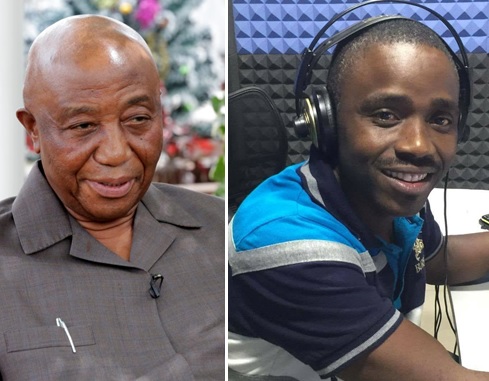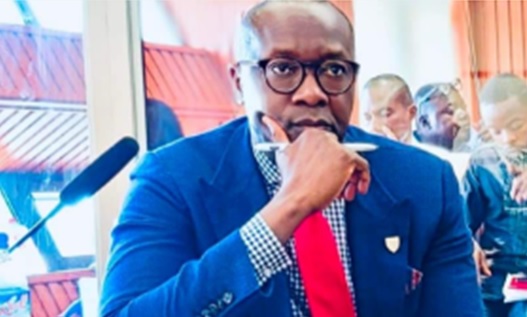MONROVIA – Abraham Godsent Wheon, a Liberian journalist and vocal critic of the Unity Party-led government under President Joseph Nyuma Boakai, has expressed his discontent following President Boakai’s decision to suspend the Board of Commissioners at the Liberia Telecommunications Authority (LTA). This decision came a day after the Supreme Court ruled on Wednesday, April 24, 2024, against the President’s nominations to tenure positions.
On Friday, April 26, President Boakai suspended the entire Board of Commissioners of the Liberia Telecommunications Authority (LTA). This included the Chairperson, Madam Edwina C. Zackpah, and Commissioners Israel Akinsanya, Zotawon D. Titus, James Gbarwea, and Osborne K. Diggs, amidst allegations of questionable financial transactions and other malpractices at the Authority.
The President subsequently requested a comprehensive audit of the LTA by the General Auditing Commission (GAC) to investigate the allegations at the Authority. He urged the suspended officials to fully cooperate with the GAC during the investigation. The Liberian Leader expressed confidence that the investigation would reveal any financial impropriety and help identify corrective measures to prevent such occurrences in the future.
Additionally, on the same day, the President suspended Chairperson and Commissioner of the Governance Commission (GC) Mr. Garrison Yealue, and Madam Elizabeth Dorkin for activities inconsistent with the Act creating the institution. The President also established a committee to investigate the matter and present a report.
In response to President Boakai’s decision, in a nearly thirteen-page Facebook post, Wheon, who is also an attorney, argued that the affected LTA officials and other tenured position holders have legal recourse, as President Boakai’s action may still constitute a violation of a Supreme Court ruling. He cited a previous case, NDPL v House of the Senate [2008] LRSC 27 (18 December 2008).
Wheon drew parallels between the current situation and a past case involving former Grand Gedeh County Senator Issac Nyenabo, who contested his suspension as President Pro Tempore of the Liberian Senate. In Nyenabo’s case, the Supreme Court ruled that his suspension was unconstitutional and contrary to Senate rules.
The crux of the argument lies in whether a suspension can be equated with removal. Wheon referenced legal definitions of “removal” and “suspension,” highlighting that both involve the act of depriving an individual of their duties, albeit temporarily or permanently.
He emphasized that the Constitution does not distinguish between temporary or permanent removal, only forbidding removal without a two-thirds majority of the Senate. Therefore, Wheon contended that President Boakai’s suspension of the LTA officials may still amount to removal, especially if it contravenes the conditions outlined in the LTA Act regarding disqualification and removal.
Wheon also questioned the basis for the suspensions, noting that the LTA Act and Senate rules do not explicitly provide for suspension or specify punishable offenses.
Furthermore, he criticized the reliance on past precedents of suspensions at the LTA, arguing that legal precedents should only be used to address current matters.
In conclusion, Wheon emphasized the importance of upholding the rule of law and warned against the abuse of power, urging the suspended officials to seek legal recourse if they believe their rights have been violated.
Based on Wheon’s analysis, it appears that the suspended officials may have grounds for legal action, potentially challenging President Boakai’s decision in court.
Meanwhile, the Liberian Leader has appointed Mr. Ambullah L. Kamara, Mrs. Angela Cassell Bush, Mr. Clarence K. Massaquoi, Mr. Ben A. Fofana, and Mr. Patrick Honnah as Acting Chairperson and Acting Commissioners respectively pending the finality of the General Auditing Commission’s audit.







